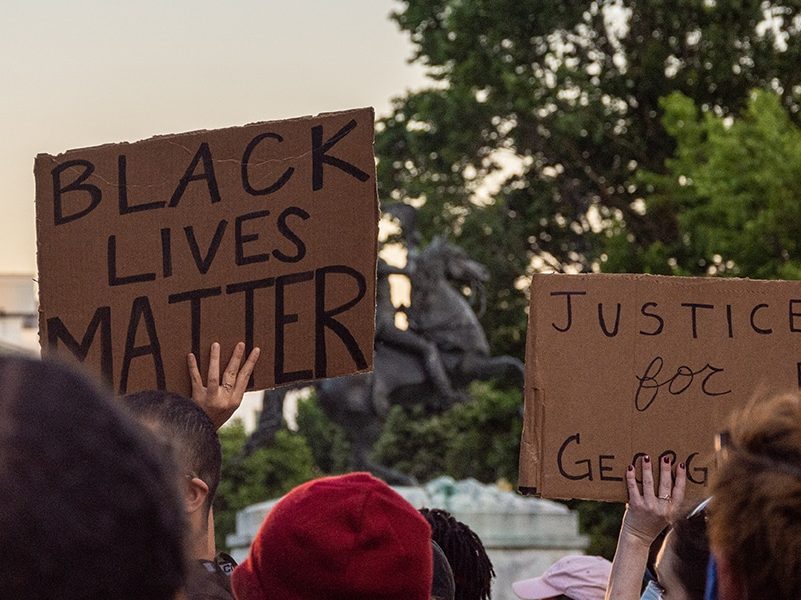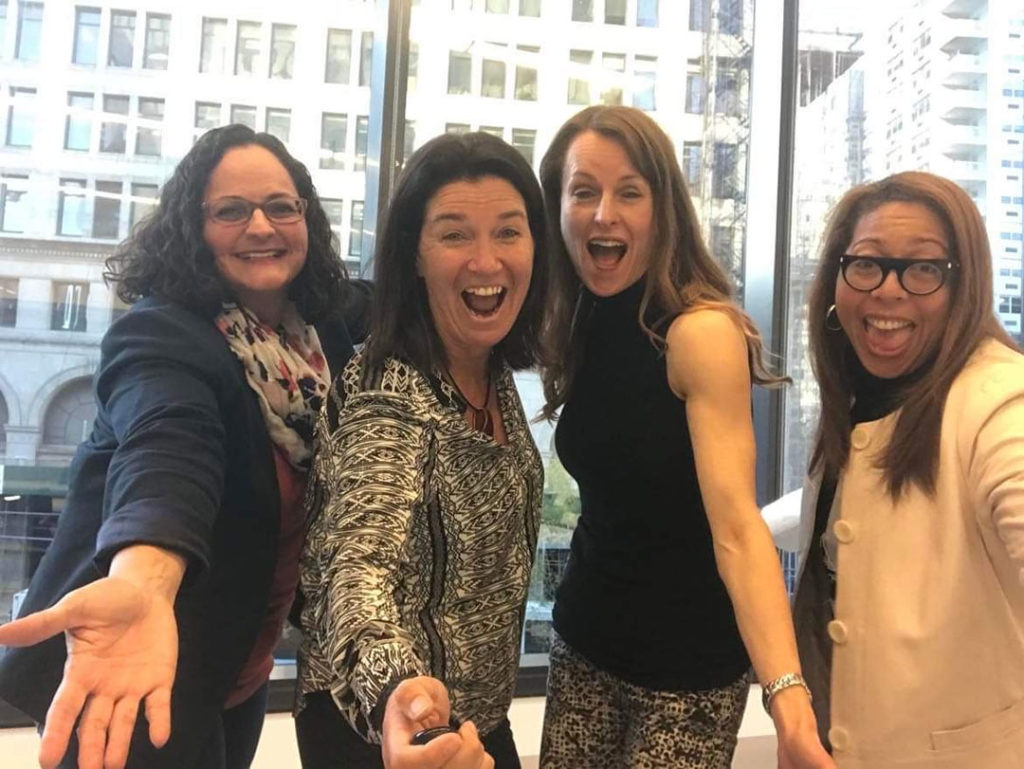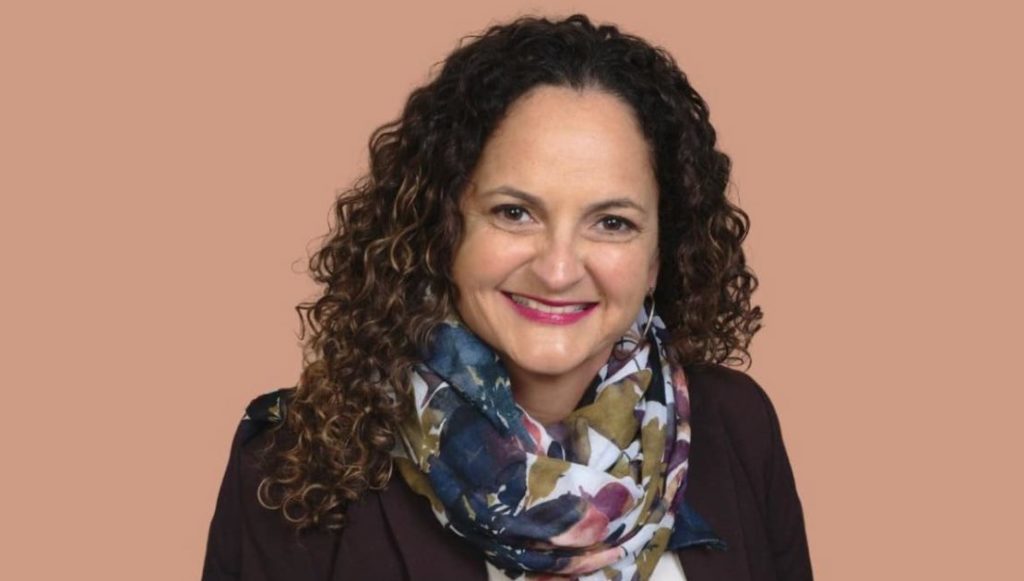Latinos must acknowledge our own racism, then we must pledge to fight it

Originally Published in The Miami Herald
BY STEPHANIE VALENCIA AND DENISE COLLAZO
“The heartbeat of racism is denial. The heartbeat of anti-racism is confession.”
Ibram X. Kendi
In the days after George Floyd’s murder by Minneapolis police, we have seen thousands of people protest across the country demanding change. They are a result of inhumane and unjust systems that have wreaked havoc on black communities for generations and leadership that has failed to hold police accountable.
The protests come amid a global pandemic that has disproportionately affected the health and economic well being of millions of African-American and Latino people, who are dying at twice the rate of the rest of the population. It will take decades for our communities to recover from the destabilization.
This moment should serve as yet another wake-up call to the insidiousness of anti-blackness built into the fabric of our society.
Today, we say unequivocally: Black lives matter!
We commit to stand alongside the black community and fight for justice with them. We demand deep structural reform to address the problem of police violence and police accountability, racial inequality, and opportunity gaps. All policies must be on the table — including defunding of police and investment in communities of color so they don’t just survive, but thrive.
While we must hold President Trump and other leaders accountable, we must ask ourselves how our own actions contribute to racism and colorism in this country. Our collective inaction and silence contributed to the lynchings of Michael Brown, Pamela Turner, Laquan McDonald, Walter Scott, Freddie Gray, Eric Garner, Trayvon Martin, Tamir Rice, Sandra Bland, Philando Castile, Atatiana Jefferson, Breonna Taylor, Sean Reed and George Floyd. Add to that list this many Latinos who also have been killed at the hands of the state: Reefa Hernandez, Antonio Arce, Francisco Serna, Anthony Baez, Antonio Zambrano-Montes, Jessie Hernandez, David Silva and, most recently, Sean Monterrossa, who was peacefully protesting in Vallejo, California.
We have failed to grapple with anti-blackness that exists in our own community. As Latinx, we are descendants of many countries. According to the Pew Research Center, one quarter of U.S. Latinos identify as Afro-Latino, Afro-Caribbean or of African descent with roots in Latin America. Many in our community benefit from the privilege or illusion of proximity to whiteness,without acknowledging the depth of our own African diaspora.
We have been raised in families who refer to blackness in the diminutive (morenita, negrita, prietita). We have remained silent when our tias have encouraged us to partner with people who have lighter skin than we do so we can mejorar la raza. We have hated ourselves for our skin color, hair texture, our curves and our accents. Our faith traditions, the schools we attend, the families we love, the music we listen to are anchored in blackness and our indigenous roots, but we obscure that with whiteness.
Racism has influenced our own American experience. Our country was founded on stolen Native American land and the stolen labor of the enslaved. Generations of injustices have left us with prison systems that disproportionately cage and dehumanize black and brown people; systems, laws, and socially expected behaviors that reinforce this basic idea.
As Latinx, we have experienced America’s hate when our children have been put in cages and our families are ripped out of our lives and deported. Hate is the reason that our immigrant family members are deemed as COVID-19 ‘essential’ but not noticed as ‘heroes.’ We felt it in the shameful response to disasters in Puerto Rico. Last week, we saw on live television when Omar Jimenez, an Afro-Latino CNN reporter was arrested while doing his job.
The path to healing starts with acknowledgment. Next must come action. We, the undersigned, are announcing the following commitments:
We commit to standing with the black community in saying unequivocally, that Black Lives Matter. We will take direction from black organizers in our response to anti-black police violence. All signatories to this letter have donated to organizations that are black-led and black-centered.
We commit to hold all politicians at every level of government accountable, for advancing bold, structural change. We will challenge them when they stand in the way. We commit to include ending anti-black racism in our legislative priorities. This means fighting for policies to end police brutality, promote economic policies that address racial inequities and opportunity gaps and push to overhaul legal systems (voting rights, private prisons, bail bonds) that benefit and profiteer from black, brown and immigrant oppression.
We commit to starting the process of acknowledgment and healing of racism and colorism within our own community and families. We will act on ways that have allowed anti-blackness to stand in our own families, communities, and institutions. We will dedicate resources to raise consciousness and disrupt anti-Blackness within our own organizations.
We hold our Spanish-language and Latino-focused media accountable for how they use their platforms to dismantle racism, colorism and anti-blackness in our own Latino community. We demand that Spanish-language media tell the stories of Afro-Latino people and the discrimination they face and include more Afro-Latino voices in front of and behind the camera.
Over the coming months, there will be many attempts to divide black and brown communities. In order to build the society that we want, where opportunity is for everyone and our communities are liberated from oppression that binds us, we must come together as we have in the past and fight together, united.
Stephanie Valencia is co-founder and president of Equis Labs. Denise Collazo is senior adviser, Faith in Action. They wrote this on behalf of these organizations:
- Alejandra Gomez and Tomas Robles, co-executive directors, LUCHA Arizona
- Alejandra Y. Castillo, CEO, YWCA USA
- Amanda Renteria, CEO, Code for America
- Ana Maria Archila, executive director, Center for Popular Democracy
- Ana Marie Argilagos, president and CEO, Hispanics in Philanthropy
- Ana Sofia Peleaz, executive director, Miami Freedom Project
- Andrea Mercado, executive director, New Florida Majority
- Anthony D. Romero, executive director, American Civil Liberties Union
- Becca Guerra, director, New American Majority Fund, Democracy Alliance
- Brenda Castillo, executive director, National Hispanic Media Coalition
- Carmen Perez-Jordan, CEO and president, The Gathering for Justice, Justice League NYC
- Cecilia Munoz, vice president, New America
- Chris Melody Fields Figueredo, executive director, Ballot Initiative Strategy Center
- Cid Wilson, president and CEO, Hispanic Association on Corporate Responsibility
- Cristina Jimenez, executive director, United We Dream
- Denise Collazo, senior advisor, Faith in Action
- Diana Albarran Chicas, co-founder, Latinas in STEM Foundation
- Elsa Marie Collins, co-founder, This is About Humanity
- Frankie Miranda, president, Hispanic Federation
- Hector Sanchez Barba, CEO and executive director, Mi Familia Vota
- Irene Godinez, founder and executive director, Poder NC Action
- Janet Murguia, president and CEO, UnidosUS
- Jess Morales Rocketto, civic engagement director, National Domestic Workers Alliance
- Juan Cartagena, president & general counsel, LatinoJustice PRLDEF
- Liz Rebecca Alarcón, founder and executive director, Pulso
- Lorella Praeli, president, Community Change Action
- Marco A. Davis, president and CEO, Congressional Hispanic Caucus Institute (CHCI)
- Marcos Vilar, executive director, Alianza for Progress
- Maria Elena Salinas, independent journalist, MES Multi Media LLC
- María Teresa Kumar, CEO and president, Voto Latino
- Mariana Ruiz Firmat, executive director, Kairos
- Melissa Morales, executive director, Somos Votantes
- Dr. Mildred Garcia, president and CEO, American Association of State Colleges and Universities
- Monica Lozano, CEO, College Futures Foundation
- Mónica Ramírez, president, Justice for Migrant Women and The Latinx House
- Nathalie Rayes, president and CEO, Latino Victory
- Rocio Saenz, executive vIce president, Service Employees International Union
- Sarah Audelo, executive director, Alliance for Youth Action
- Sergio Gonzales, deputy director, The Immigration Hub
- Sindy Benavides, CEO, League of United Latin American Citizens (LULAC)
- Stephanie Valencia, co-founder and president, EquisLabs
- Susan Gonzales, founder and CEO, AIforYou.org
- Tory Gavito, president, Way to Win
- Yadira Sanchez and Esteban Garces, co-executive directors, Poder Latinx



